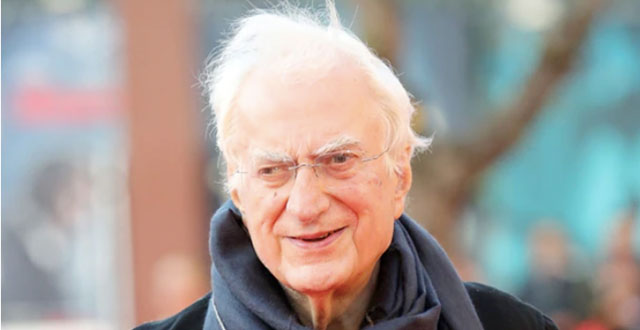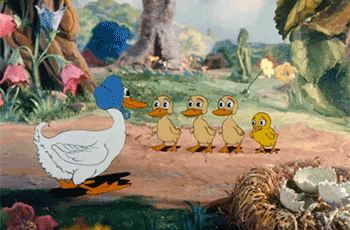
BERTRAND TAVERNIER, 1941-2021
03/26/2021It’s going to be difficult for me to start talking about Bertrand Tavernier in the past tense.
Bertrand loved to talk. He loved to talk about movies, about history, about music, about literature, about food, about wine. When he told a story in his trembling musical baritone, he would get to the punchline, gauge your laughter, and then repeat said punchline with a mischievous smile to encourage more laughter, spurring you on with exclamations of “Eet’s eencredible, non? Eh?” I remember visiting him in the room where he was cutting My Journey Through French Cinema. He showed me a few different segments, including his moving tribute to Jean-Pierre Melville. Bertrand was bracingly honest about shortcomings in the work of his favorite filmmakers. That included Melville’s own “disputable performance” in his Deux Hommes dans Manhattan, not to mention Bertrand’s “delirious” rave for the film in a magazine called L’Étrave. There is a clip of Melville questioning a woman in a hospital bed, and asking her in English: “Where did he die? Tell me – where did he die?” After the sequence had finished, Bertrand started chuckling and repeating Melville’s godawful line reading “‘Whayre deedhe dyee?’ Eencredible, non? Eh?”
In the 90s, most of the younger French filmmakers I knew were dismayed that I had any sympathy for Bertrand’s work. When I mentioned to one director I knew that I was a fan of his police/gangster film L627, it was as if I’d said that apart from the genocide Hitler wasn’t really that bad. “Well,” my friend murmured darkly, “I suppose if you didn’t live in this country you could feel differently about it…” Bertrand stuck up for all the French films of the past that my friends ignored, seeing interesting passages and grace notes in the work of directors who had long ago been ripped to shreds by Truffaut, Godard, and the rest of the critics at Cahiers du Cinéma. He pissed off a lot of people when he told an unflattering but absolutely believable story about Truffaut-as-young-critic-on-the-make in a documentary by Antoine de Baecque and Serge Toubiana, and he pissed off many more with a letter he ghost-wrote, signed by multiple filmmakers, insisting that French critics took too much pleasure in attacking and destroying too many of their country’s own movies. The positions made people uncomfortable and upset a lot of orthodoxies, but they were honestly held.
As for his films, Bertrand operated on a different wavelength from almost everyone around him. I remember the spell cast by ‘Round Midnight, in which he was able to pay tribute to his second great love, jazz, by means of his first, cinema. Dexter Gordon’s music-making was a little off in that film, but his presence was magic every second he was onscreen. I loved his post-WWI drama Life and Nothing but… a lyrical, vivifying film about the search for the Unknown Soldier as the country was slowly coming back to life. And in the early 2000s Bertrand made my favorite of his films, Safe Conduct, based on the experiences of Jean-Devaivre, Jean Aurenche and others he had come to know who had worked in the movie industry throughout the occupation. There was a reverent awe in the presence of the past in those movies that I found deeply moving in and of itself.
Right now, I’m looking at my shelf of DVDs and Blu-rays, at titles by Henry Hathaway and Delmer Daves. I came to appreciate both of them thanks to Bertrand and Bertrand alone (he writes passionately about both in his two-volume dictionary of American directors co-written with Jean-Pierre Coursodon, and his interviews with both men appear in his collection Amis Américains). I programmed a small selection of Hathaway films the year we showed My Journey Through French Cinema in the New York Film Festival as a tribute to Bertrand, and I’m happy that I did. He alerted his friends to every new DVD or Blu-ray release of forgotten films that he considered to have passages of merit or that occupied interesting places in the landscape of cinema, and he was always advocating for the restoration of multiple titles. He was the one who alerted The Film Foundation to the fact that there were elements for The Chase, which I wrote about a few weeks back, held in a European archive. He was also on the advisory board of the World Cinema Project and recommended one of his old friend André de Toth’s Hungarian films, Two Girls on the Street, which was subsequently restored.
Bertrand and I would see each other every time I visited Paris and every time he came to New York, sometimes on our own and sometimes with his wife Sarah. His health was always questionable in the last years, as he was beset by one illness after another, but his curiosity was boundless and his focus and intelligence were unflagging. He was a great talker—a world championship talker, I guess you might say—but it was never an oration. It was always a conversation, because it was based on a shared love for the cinema. I relished every minute of it.
I wish I could have seen Bertrand just one more time, to talk and laugh and discover and disagree and talk some more. And I want to tell everyone who might be reading this that whether you know it or not, this loss is immense. One more gone, who remembered.
The Film Foundation